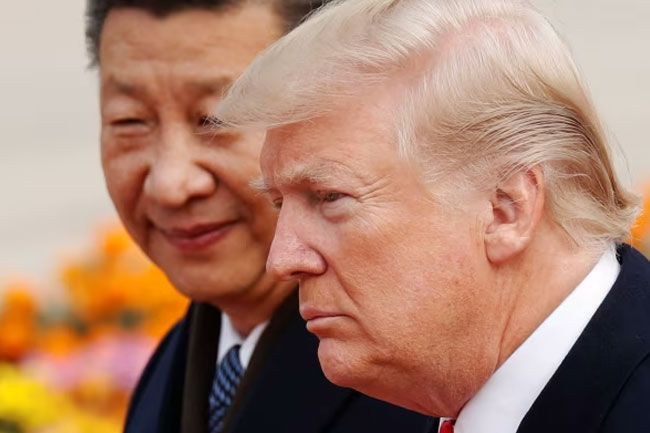Global Port Takeover Fuels Geopolitical Tensions
The acquisition of strategic ports by international investors from CK Hutchison has sparked geopolitical debates and raised significant concerns over global maritime control.
Published April 16, 2025 - 00:04am

Image recovered from big5.sputniknews.cn
In a significant development in global logistics and international relations, the acquisition of several strategic ports has brought a consortium of investors led by BlackRock and Terminal Investment Limited (TiL) into the spotlight. The deal, primarily centered on the ports controlled by CK Hutchison, involves the transfer of 43 port facilities worldwide, including two vital ports located in Panama. Although the detailed financial compensation hinges around 22.8 billion dollars, the broader implications of this transaction extend far beyond monetary figures.
Strategically located at the junction of global trade routes, the Panama Canal has long held pivotal importance for international maritime logistics. Control over the surrounding ports affords the management of substantial sections of maritime traffic. BlackRock, an influential American investment firm, has entered into the fray with aims to manage these two crucial maritime assets by acquiring a substantial share through its subsidiary, Global Infrastructure Partners. Collective ownership of these ports is poised to greatly influence future shipping logistics, amplifying the significance of this acquisition.
The maneuver is complicated by geopolitical dimensions, with the escalating tensions between China and the United States looming heavily over the transaction. Both superpowers have vested interests in the strategic control of the Panama Canal, rendering the acquisition a contentious issue. An ongoing antitrust investigation by the Chinese government underlines these tensions, with concerns being raised about the increasing American influence within a region traditionally considered under China's ambit of influence through its Belt and Road Initiative.
Conversely, the Trump administration had clearly communicated its interest in enhancing control over the Panama Canal, with foreign policy initiatives reflecting a strategic check on Chinese expansion. The shift in port ownership finds itself as an issue of strategic national interest, likely impacting future bilateral relations between China and the United States.
Li Ka-shing, a prominent business magnate from Hong Kong, stands at the financial epicenter of this transaction, with CK Hutchison set to reap significant monetary benefits from the sale. Reports suggest that his net gain from the deal could exceed 19 billion dollars. Despite the financial rewards, the transaction has drawn criticism amidst China's political landscape, questioning the strategic divestment of assets that bolster national economic interest against rising international pressure.
On the other hand, the Italian Aponte family's rapidly expanding business interests in the maritime sector underscore the global shifts in shipping and logistics paradigms. Through Terminal Investment Limited, the Aponte family plans to dominate port ownership globally, excluding the Panama Canal ports. The deals entirety marks a significant mile marker in the group's strategic investments portfolio. Analysts speculate on potential impacts such transactions bear on not only maritime logistics but also global supply chains grappling for stability in an unpredictable economic environment.
With new developments likely on the horizon, businesses worldwide remain on alert while closely monitoring the potentially transformative outcomes resulting from the acquisition. The complex nature of ownership transitions in politically sensitive regions means future negotiations and governance are as much about ironclad logistics as they are about navigating the turbulent waters of geopolitics.






